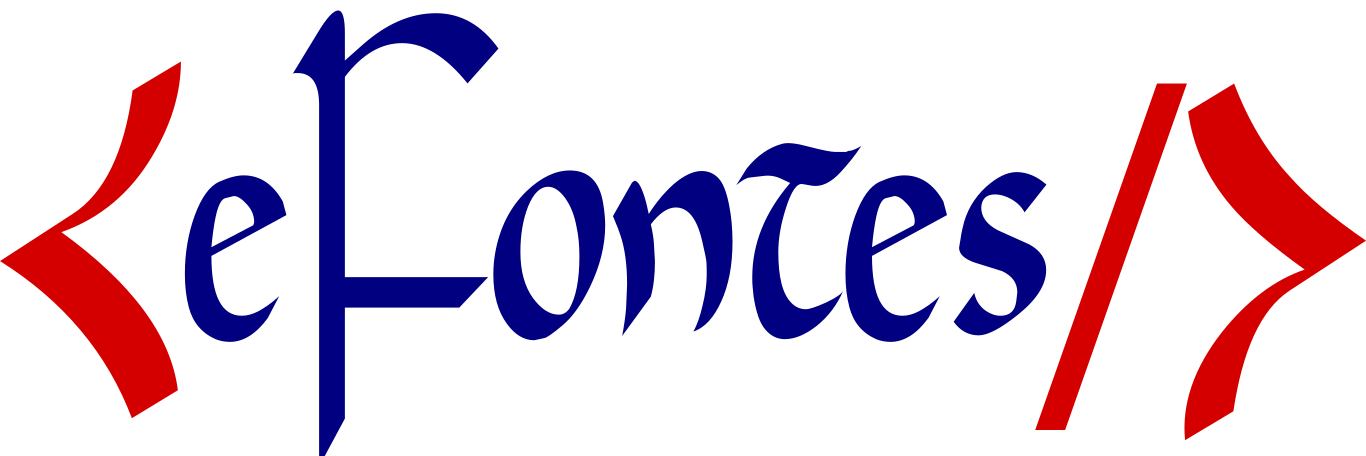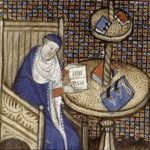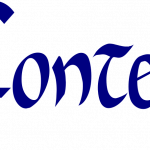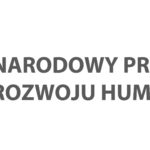[: pl]
2nd eFontes Workshop: Call for Papers
Borders, turning points, periods in the Latin writing of the Polish Middle Ages
Introduction
In days 2-4 December 2020 the second edition of the project's workshops will be held in Krakow eFontes. Electronic corps of Polish Medieval Latin carried out in the Medieval Latin Studio of the Institute of Polish Language of the Polish Academy of Sciences. The meetings organized every year are to deepen our knowledge about the diversity and richness of Latin literature of medieval Poland, and at the same time to discuss the most important aspects of creating the corpus of Polish medieval Latin. The meetings will also be an opportunity to present the project itself and learn about the expectations of the environment. This year we organize workshops under the slogan Borders, turning points, periods in the Latin writing of the Polish Middle Ages.
The process of creating a corpus involves making a series of decisions that arbitrarily categorize historical and cultural reality. When does the Polish Middle Ages begin and end? What geographic boundaries should be drawn for Latin production in the 13th and 15th century? Are the works of Mateusz from Krakow associated with the environment of Krakow, Prague or maybe Heidelberg? Should widely recited biblical texts, imported forms, Western European collections of exemplars find their place in the corpus as documents of the reception that shape linguistic usage? What status should be accorded in it to Polish-Latin texts, glosses, Polish or German documents? How and whether to represent complex text-image relationships?
Corpus eFontes nie jest jednak tylko metodologicznym wyzwaniem, gdyż może zarazem pomóc w odpowiedzi na powyższe pytania i dostarczyć nowych hipotez badawczych. Badania nad zmiennością języka i metody humanistyki cyfrowej pozwalają nam dziś bowiem na nowo zdefiniować ważkie pojęcia analityczne (takie jak „styl kancelarii” czy „praktyki piśmienne”) oraz zobiektywizować opis zróżnicowania geograficznego, chronologicznego, stylistycznego i społecznego łacińskich tekstów polskiego średniowiecza.
We cordially invite historians, linguists, literary scholars and representatives of other mediaeval specialties to participate in the workshop. Due to the nature of the project, we want papers, the authors of which - apart from detailed considerations - will indicate disputable issues, research perspectives and questions that the corpus can help with.
Speech topics
During the second workshop, we propose to look at, among others on the following topics:
- caesura, epochs, historical periods in the light of the analysis of Latin texts
- When does the Polish Middle Ages end and how is it expressed in the Latin text?
- How do cultural turning points make themselves known in medieval Latin literature?
- is Polish medieval Latin undergoing historical change?
- long duration or dynamics of writing practices?
- geographical boundaries and diversity of Polish Medieval Latin
- state and administrative boundaries versus language boundaries?
- geographical variation of the language of the Latin document and texts of practice
- borderlands: the influence of Latin neighbors on the language of texts written in Poland
- supralocal and pan-European in Polish writing production
- imported forms, collections of exemplars, vocabulary: is this Polish medieval Latin?
- normative and standardizing influence of the church and secular administration centers on writing production in Poland
- social and stylistic variation of texts
- loca scribendi and the varieties of language
- sociolects and special languages
- Latin and vernacular languages
- the status of a multilingual text in the corpus
- what tools do we need for research on dy- and polyglossia?
- text and non-text
- image in the body
- whether to include text variations in the corpus?
- limit cases of text: glosses, colophones, subtitles
- blurring of borders, uncertainty and blur as problems of digital media studies
- metadata in historical corpora: time, place, authorship
- changing state borders and the structure of a research facility
Participation in workshops
A shortened (up to 100 words) abstract and the title of the speech should be sent using the form below until April 5, 2020 Down April 10 you will be informed about your acceptance of the speech, and then asked to prepare and submit an extended (up to 500 words) abstract.
The presentation time cannot exceed 30 minutes (+ 10 minutes for discussion).
We plan to prepare a post-conference publication and to record and publish a transcript of the speeches if the Speaker agrees to the registration of it.
Participation in the workshops is free of charge. We also hope to finance the costs of travel and accommodation in Krakow 6-8 of the speakers whose papers will be accepted from the project funds.
Important dates
- April 26, 2020 deadline for sending short abstracts
- May 4, 2020 information about the acceptance of the paper
- TBA deadline for submitting the article to the post-conference volume
- TBA publication of the post-conference volume
Contact
Any questions can be directed to the following address: krzysztof.nowak@ijp.pan.pl.
[DISPLAY_ULTIMATE_SOCIAL_ICONS][:en]
2nd eFontes Workshop: Call for Papers
Borders, turning points, periods in the Latin writing of the Polish Middle Ages
Introduction
In days 2-4 December 2020 the second edition of the project's workshops will be held in Krakow eFontes. Electronic corps of Polish Medieval Latin carried out in the Medieval Latin Studio of the Institute of Polish Language of the Polish Academy of Sciences. The meetings organized every year are to deepen our knowledge about the diversity and richness of Latin literature of medieval Poland, and at the same time to discuss the most important aspects of creating the corpus of Polish medieval Latin. The meetings will also be an opportunity to present the project itself and learn about the expectations of the environment. This year we organize workshops under the slogan Borders, turning points, periods in the Latin writing of the Polish Middle Ages.
The process of creating a corpus involves making a series of decisions that arbitrarily categorize historical and cultural reality. When does the Polish Middle Ages begin and end? What geographic boundaries should be drawn for Latin production in the 13th and 15th century? Are the works of Mateusz from Krakow associated with the environment of Krakow, Prague or maybe Heidelberg? Should widely recited biblical texts, imported forms, Western European collections of exemplars find their place in the corpus as documents of the reception that shape linguistic usage? What status should be accorded in it to Polish-Latin texts, glosses, Polish or German documents? How and whether to represent complex text-image relationships?
Corpus eFontes nie jest jednak tylko metodologicznym wyzwaniem, gdyż może zarazem pomóc w odpowiedzi na powyższe pytania i dostarczyć nowych hipotez badawczych. Badania nad zmiennością języka i metody humanistyki cyfrowej pozwalają nam dziś bowiem na nowo zdefiniować ważkie pojęcia analityczne (takie jak „styl kancelarii” czy „praktyki piśmienne”) oraz zobiektywizować opis zróżnicowania geograficznego, chronologicznego, stylistycznego i społecznego łacińskich tekstów polskiego średniowiecza.
We cordially invite historians, linguists, literary scholars and representatives of other mediaeval specialties to participate in the workshop. Due to the nature of the project, we want papers, the authors of which - apart from detailed considerations - will indicate disputable issues, research perspectives and questions that the corpus can help with.
Speech topics
During the second workshop, we propose to look at, among others on the following topics:
- caesura, epochs, historical periods in the light of the analysis of Latin texts
- When does the Polish Middle Ages end and how is it expressed in the Latin text?
- How do cultural turning points make themselves known in medieval Latin literature?
- is Polish medieval Latin undergoing historical change?
- long duration or dynamics of writing practices?
- geographical boundaries and diversity of Polish Medieval Latin
- state and administrative boundaries versus language boundaries?
- geographical variation of the language of the Latin document and texts of practice
- borderlands: the influence of Latin neighbors on the language of texts written in Poland
- supralocal and pan-European in Polish writing production
- imported forms, collections of exemplars, vocabulary: is this Polish medieval Latin?
- normative and standardizing influence of the church and secular administration centers on writing production in Poland
- social and stylistic variation of texts
- loca scribendi and the varieties of language
- sociolects and special languages
- Latin and vernacular languages
- the status of a multilingual text in the corpus
- what tools do we need for research on dy- and polyglossia?
- text and non-text
- image in the body
- whether to include text variations in the corpus?
- limit cases of text: glosses, colophones, subtitles
- blurring of borders, uncertainty and blur as problems of digital media studies
- metadata in historical corpora: time, place, authorship
- changing state borders and the structure of a research facility
Participation in workshops
A shortened (up to 100 words) abstract and the title of the speech should be sent using the form below until April 5, 2020 Down April 10 you will be informed about your acceptance of the speech, and then asked to prepare and submit an extended (up to 500 words) abstract.
The presentation time cannot exceed 30 minutes (+ 10 minutes for discussion).
We plan to prepare a post-conference publication and to record and publish a transcript of the speeches if the Speaker agrees to the registration of it.
Participation in the workshops is free of charge. We also hope to finance the costs of travel and accommodation in Krakow 6-8 of the speakers whose papers will be accepted from the project funds.
Important dates
- April 26, 2020 deadline for sending short abstracts
- May 4, 2020 information about the acceptance of the paper
- June 30, 2020 deadline for submitting full abstracts
- TBA deadline for submitting the article to the post-conference volume
- TBA publication of the post-conference volume
Contact
Any questions can be directed to the following address: krzysztof.nowak@ijp.pan.pl.
[DISPLAY_ULTIMATE_SOCIAL_ICONS][:]



